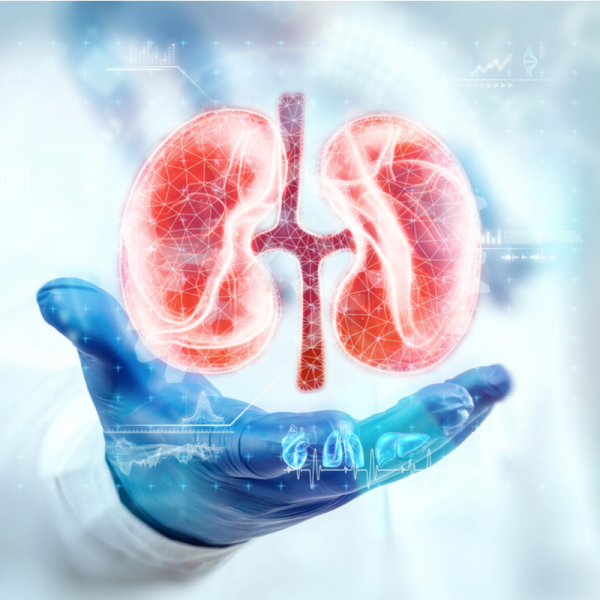
What is a renal cyst?
A kidney cyst is a fluid-filled cavity inside or immediately adjacent to the kidney. If there are several kidney cysts, it is called a cystic kidney or polycystic kidney disease. The likelihood of developing kidney cysts is rare in people under 50 years of age and increases with age.
How do kidney cysts develop?
The specific causes for the development of only a single kidney cyst are still unclear. However, the development of a cystic kidney is usually hereditary, but it can also develop as a result of many years of dialysis.
What symptoms does a kidney cyst cause?
If it is a single kidney cyst, it will usually cause few or no symptoms and therefore usually remains undetected. However, if more than one kidney cyst has formed or if a single kidney cyst has become very large, it can cause pain in the kidney and/or abdomen. A large kidney cyst can also cause back pain, blood in the urine and/or high blood pressure, while the following symptoms are typical for cystic kidneys:
- frequent urinary tract infections,
- Protrusion of the intestine (intestinal diverticulum),
- Cysts in other organs, such as the liver or spleen,
- Dilatation of blood vessels (aneurysm),
- more rarely: heart valve defects
How is a kidney cyst diagnosed?
While individual kidney cysts that are asymptomatic are usually only discovered by chance, a cystic kidney can be diagnosed using the usual imaging procedures. These include an ultrasound (sonography), a computer tomography (CT) or an X-ray examination. Furthermore, a renoscopy can provide information about whether a kidney tumour is present. Blood and urine tests can also be done to rule out urinary tract infections and/or impaired kidney function.
How is a renal cyst treated?
The treatment of a kidney cyst depends on its size and the degree of discomfort it causes. If it is a single kidney cyst that is not particularly large, it usually does not need treatment. In any case, treatment is always aimed at relieving the symptoms and can be done as follows:
- high blood pressure: treatment by means of blood pressure-lowering medication and regular check-ups,
- Urinary tract infections: Antibiotics
If a single kidney cyst has reached such a size that it is displacing kidney tissue, surgical removal may be necessary. In some cases, however, a puncture is sufficient, in which the doctor uses a hollow needle to suck the fluid out of the cyst and then glues the emptied cyst together with a chemical. The puncture has the advantage that it is a minimally invasive procedure. However, the kidney cysts reappear after a certain time.
